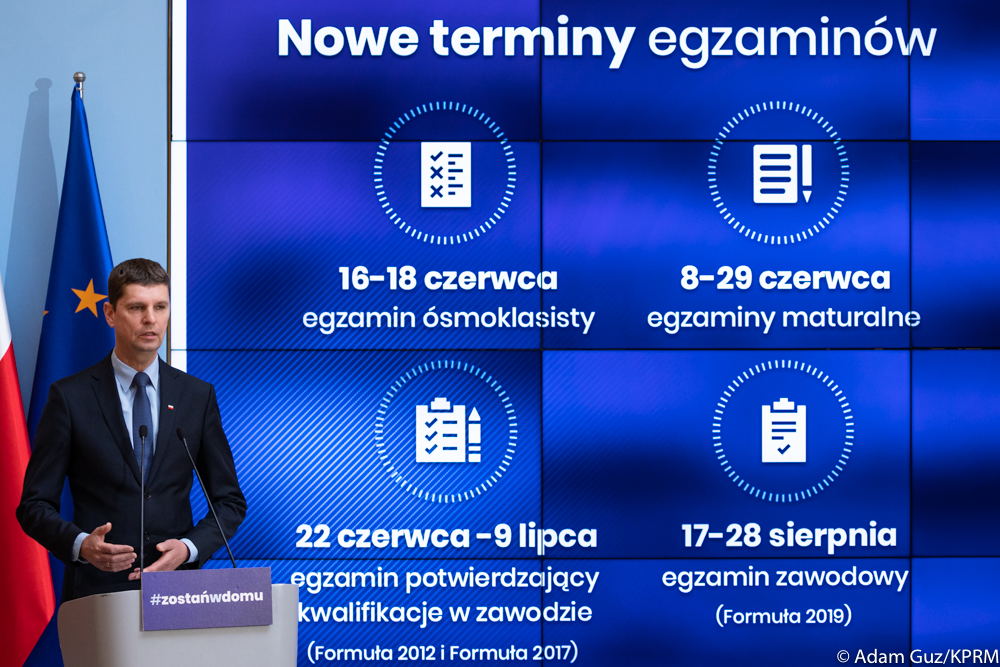Poland’s government announced on Friday that universities, schools, preschools and nurseries will remain closed until at least 24 May, amid the continued coronavirus lockdown. Until then, students will continue classes online.
Poland’s high-school graduation exams (matura), which would normally take place in May, will run between the 8 and 29 of June and will this year not include an oral part. An additional exam session will be organised in early July for students who cannot attend the main session.
The exam results are expected to be released by 11 August and a resit will be held in early September. University recruitment will have to be modified to take account of the later exams, although the government still expects the academic year to begin as normal in October.
The primary-school leaving exams, which were due to take place from late April to early May, will now run between 16 and 18 June, with results expected in July. This should allow students enough time to apply to high schools, said the education minister, Dariusz Piontkowski, at today’s press conference.
The Polish Association of Teachers (ZNP) has appealed for the primary school exam to be called off this year, instead allowing pupils to apply to high schools based on their grades transcript. The minister, however, responded that “exams are the only objective way to assess the knowledge of students,” reports Gazeta Wyborcza.
Other exams planned for the summer include those for certifications of professional competence scheduled for 22 June and for students at vocational colleges in mid-August.
Speaking alongside Piontkowski, the health minister, Łukasz Szumowski, said that the exams themselves will be held under strict sanitary conditions, including separate desks for exam-takers and the cancellation of oral tests.
He added that the dates are contingent on Poles “upholding social distancing” regulations, such as the recently introduced requirement to wear face masks. The government began to loosen some restrictions at the start of this week.
Since schools shut down on 11 March and introduced online classes on 25 March, over 7.5 million learners have moved to remote learning. Adaptation has proved a challenge for pupils, parents and teachers, especially those with limited access to or familiarity with digital devices. Online education platforms initially struggled with higher traffic.
Moreover, during the lockdown many parents have had to stay home to take care of their children. In the coming days the government will also announce whether educational institutions can engage in limited forms of daycare, to help unburden working parents.
Main image credit: Adam Guz/KPRM/Flickr (under CC BY-NC-ND 2.0)

Maria Wilczek is deputy editor of Notes from Poland. She is a regular writer for The Times, The Economist and Al Jazeera English, and has also featured in Foreign Policy, Politico Europe, The Spectator and Gazeta Wyborcza.




















